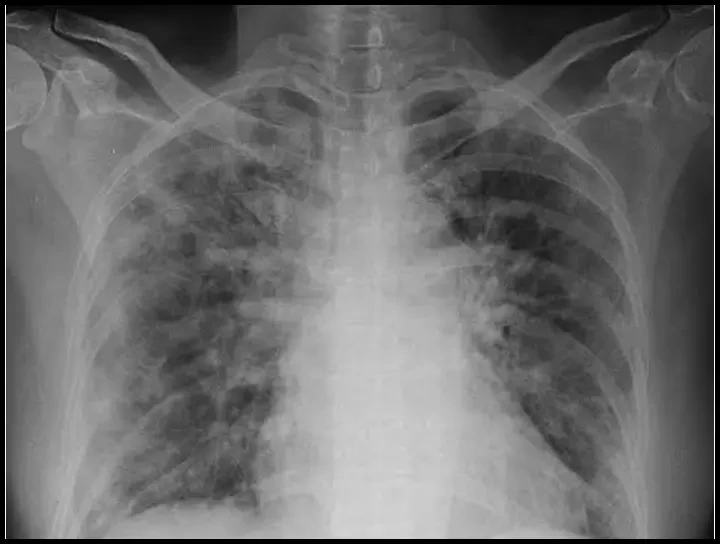
Pneumonia is an acute respiratory infection that occurs when the air sacs of the lungs become inflamed and swollen with pus and fluid, which makes breathing difficult and painful. Types of pneumonia (by causative organism)
1)Bacterial-Streptococcus pneumonia is the most common bacterial pneumonia in children, followed by Haemophilus influenza Type B. Transmission is via the inhalation of respiratory droplets such as coughing and sneezing, from an infected person. Streptococcus pneumonia is also the most common cause of community-acquired pneumonia, an important cause of bacterial meningitis, and swelling that occurs in the bone (osteomyelitis), amongst other infections.
2)Viral-
Respiratory syncytial virus is the most common cause of pneumonia and inflammation of small airways in the lungs (bronchiolitis) in infants. This can occur when the virus spreads to the lower respiratory tract.
3)Fungal-
Pneumocystis pneumonia is a serious form of pneumonia caused by the fungus Pneumocystis jirovecii. It is the most common cause in 25 percent of all pneumonia deaths in HIV-infected infants. Transmission of this fungus is through the air. Healthy adults can carry the fungus in their lungs and spread it to those who have weakened immunity. It commonly presents as an opportunistic infection in immunocompromised individuals, especially in patients with HIV who have low counts of white blood cells (CD4 + T cells).
-Types of pneumonia (by how it is contracted)
Infections of hospital origin (hospital-acquired pneumonia) tend to involve drug-resistant pathogens as compared to those that arise from the community (community-acquire pneumonia). Aspiration pneumonia occurs when food or drinks are inhaled into the lungs due to swallowing impairment/ brain injury/ excessive sedation from the use of medications, alcohol, or other drugs.
-Pneumonia and its symptoms can vary from mild to severe. Many factors affect how serious pneumonia is, such as the type of germ causing the infection and your age and overall health. Pneumonia tends to be more serious for:
Infants and young children.
Older adults . . . people 65 years or older
People who have other health problems like heart failure, diabetes, or COPD
People who have weak immune systems as a result of diseases or other factors.
Treatment for pneumonia depends on its cause, how severe your symptoms are, and your age and overall health. Many people can be treated at home, often with oral antibiotics.
Children usually start to feel better in 1 to 2 days. For adults, it usually takes 2 to 3 days. Anyone whose symptoms get worse should be checked by a doctor.
People who have more severe symptoms or underlying health problems may need treatment in a hospital. It may take 3 weeks or more before they can go back to their normal routines.
Fatigue from pneumonia can last for a month or more.


No Any Replies to “PNEUMONIA”
Leave a Reply